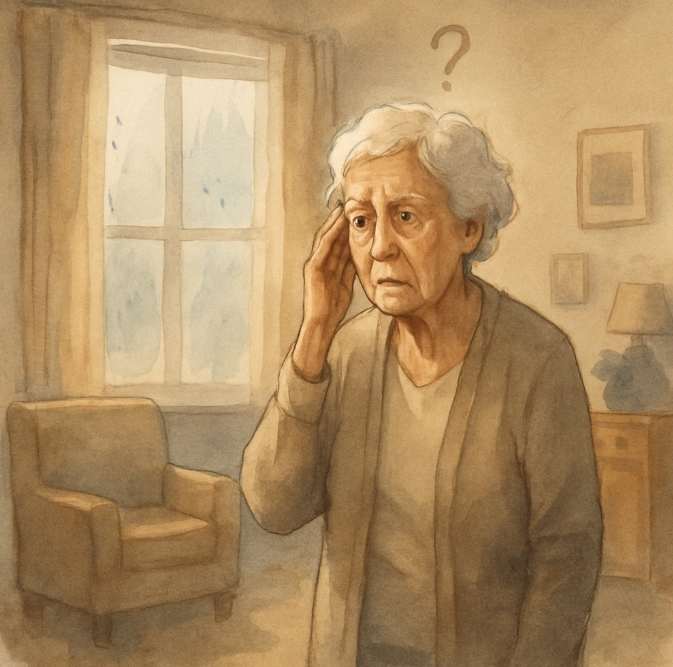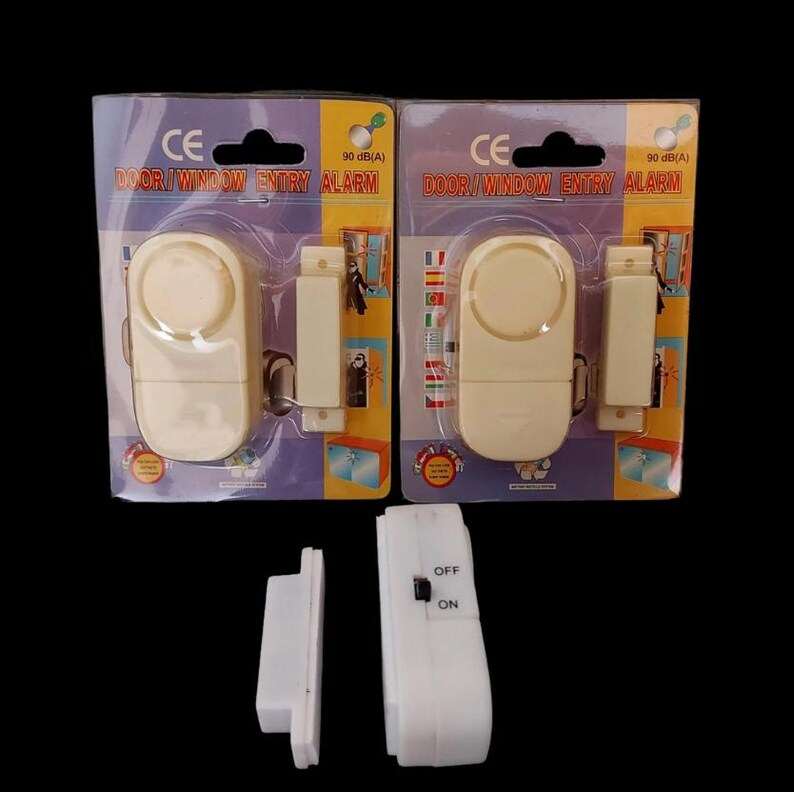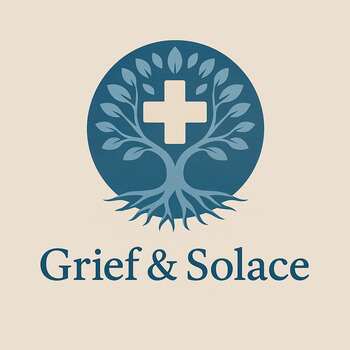Grieving Dementia: Losing Them Twice Before Goodbye – Grief & Solace
Grief in dementia comes in waves, through forgotten faces, lost routines, and the slow unraveling of the person you thought would never forget you.

This post blends real grief with grounded knowledge. It isn’t clinical. It isn’t distant. It’s meant to sit beside you—not above you. The story you’ll read is meant to reflect what so many feel when living through or witnessing this condition: confusion, exhaustion, and quiet forms of courage.
If what you read feels familiar, please speak with your doctor. Your pain deserves more than silence.
She Forgot My Name but Remembered the Song We Danced To
The first time she misplaced her keys, I brushed it off… Then, she forgot her destination while driving. Soon after, she couldn’t recall why she had entered a room. The most heartbreaking part was the way she covered it up, the nervous laughter, the casual remark, “Oh well, I must be tired.” Deep down, she understood the truth. I could see it long before I heard it. She knew.
We eventually stopped playing board games, as pieces began to vanish. Dining out became a challenge when she no longer remembered how to navigate the menu. Conversations dwindled when it became clear that I was the only one recalling our discussions. Yet, people would often remark, “She looks wonderful!” Yes, she always did. That’s the cruel reality of dementia: it hollowed her from within. Her skin remained smooth while her mind started to fray.
🧠 Symptoms:
- Memory loss that disrupts daily life
- Difficulty with complex tasks, such as managing finances or planning
- Language problems, including trouble finding words or following conversations
- Disorientation to time or place
- Poor judgment and decision-making
- Changes in mood and personality, such as increased anxiety, depression, or agitation
- Withdrawal from work or social activities
The day she asked me who I was, I chose to lie. I said I was an old friend. She smiled politely and replied, “You remind me of my son.” I was her son.
That moment shattered something deep inside me. It didn’t happen suddenly; it was a gradual unraveling, like a rot that creeps unnoticed up a wall until it threatens the very foundation. I began to talk to her as if she were still present. Sometimes she was. Most times, she wasn’t. I started to treasure flickers, those rare sparks when she would hum a tune from long ago or recall the name of our childhood dog while watching television.
That became our new language of love: fragments.
Complications:
- Inability to perform self-care tasks, leading to dependence
- Malnutrition and dehydration due to forgetting to eat or drink
- Personal safety challenges, such as wandering or falling
- Infections, particularly pneumonia
- Death, often from complications related to the loss of brain function
Causes:
- Alzheimer’s disease: the most common cause, characterized by amyloid plaques and tau tangles
- Vascular dementia: results from conditions that block or reduce blood flow to the brain
- Lewy body dementia: involves abnormal protein deposits affecting cognition and movement
- Frontotemporal dementia: associated with degeneration of the frontal and temporal lobes
- Mixed dementia: a combination of two or more types, often Alzheimer’s and vascular dementia
- Other causes: include Parkinson’s disease, Huntington’s disease, traumatic brain injury, infections, and nutritional deficiencies
Even during the darkest moments—after her wandering, after the falls, after her confusion led to tears she couldn’t articulate—there were still moments that grounded us. One day, I played her favorite song, the one from their wedding. Her eyes fluttered shut, and her lips parted. She didn’t call my name, but she sang every single word.
That was when I understood that memory doesn’t fade all at once. It drips and slips away, until only love remains—and even that sometimes forgets its own name.
Risk Factors:
- Age: risk increases significantly after age 65
- Family history: genetics can play a role in certain types of dementia
- Down syndrome: individuals are at higher risk of developing Alzheimer’s disease
- Unhealthy lifestyle: poor diet, lack of exercise, excessive alcohol consumption, and smoking
- Cardiovascular risk factors: high blood pressure, high cholesterol, and diabetes
- Depression: especially in midlife or later
- Social isolation and low levels of cognitive engagement
📘 Diagnosis & Treatment
Diagnosis involves a comprehensive evaluation, including:
- Medical history and physical examination
- Neurological assessments to evaluate balance, sensory response, reflexes, and memory
- Cognitive and neuropsychological tests to assess memory, problem-solving, and language skills
- Brain imaging (CT, MRI, PET scans) to detect strokes, tumors, or other abnormalities
- Laboratory tests to rule out other causes, such as vitamin deficiencies or thyroid disorders
- Treatment focuses on managing symptoms and slowing progression.
Medications:
- Cholinesterase inhibitors (e.g., donepezil, rivastigmine) to improve communication between nerve cells
- Memantine to regulate glutamate activity and improve memory and learning
- Antidepressants and antipsychotics may be used cautiously to manage behavioral symptoms
Therapies:
- Occupational therapy to maintain independence
- Cognitive stimulation through activities and exercises
- Physical activity to promote overall health
- Supportive care:
- Creating a safe and supportive environment
- Caregiver education and support
- Advanced care planning for future needs
I know this is heavy, and I understand that the road ahead may feel like a tangle of loss and unanswered questions. But please hear this: you are not broken because you are hurting; you are not weak because you are afraid. You are living through something real, and survival itself is a kind of grace. You are allowed to struggle, you are allowed to hope, and you are allowed to not have all the answers today. Whatever comes next, you do not face it empty-handed; you carry every moment of love that shaped you, and that will always be enough to keep going.
🎀 Gifts to help With Dementia
🏥 Everyday Comforts for Everyday Battles
Managing Dementia often means needing a little extra help.
Sometimes it’s about restoring dignity, ease, or simply getting through the day with less pain.
These carefully chosen tools aren’t just items; they’re small bridges back to living.
This section is about finding practical support, never shame.
Door Alarm Sensor Kit – Safety for Those Who Wander When Memory Slips
Wandering is one of the most dangerous behaviors in dementia. This discreet door alarm kit helps caregivers monitor exits, alerting them when someone opens a door at unexpected hours. Whether it’s a backdoor at night or a front door in the rain, this kit gives you a chance to intercept—not after the fact, but in the moment. It’s not control. It’s protection without panic.
🌿 Paths to Healing Beyond the Map
Sometimes traditional medicine isn’t enough.
If you’re exploring gentle, alternative options to help with Dementia,
you might find comfort in plant-based compounds like **CBD or CBG**.
*This section is not medical advice, just a door left open.*
USA Medical Deep Sleep Total Pack – Rest for Bodies That Forget It’s Night
Dementia doesn’t follow a clock. Nights become active. Days become foggy. This Total Pack blends melatonin, calming botanicals, and broad-spectrum CBD to gently support sleep in patients who suffer from sundowning, anxiety, and nighttime restlessness. It’s a soft nudge toward quiet—not sedation, just stillness. For them. And for you.
Need a Different Path Forward?
Every journey through grief looks different. Choose the next step that speaks to where you are now:
When You're Ready to Start Healing
Healing doesn’t mean forgetting.
It means finding small ways to carry your grief with strength and grace.
These are the stories, tools, and gentle steps to begin walking forward…at your own pace.
When You're Still in the Thick of It
Sometimes healing feels like a lie.
If you’re not ready to move on…if the pain still roars louder than the world wants to hear…this is the place where you’re allowed to feel it.
No sugarcoating. No pretending. Just truth.
When You're Holding on to Who’s Still Here
Grief reminds us to love louder.
If someone you love is still with you, this is your place to celebrate them, honor them, and create new memories while there’s still time.
Joy and sorrow can live side by side.






